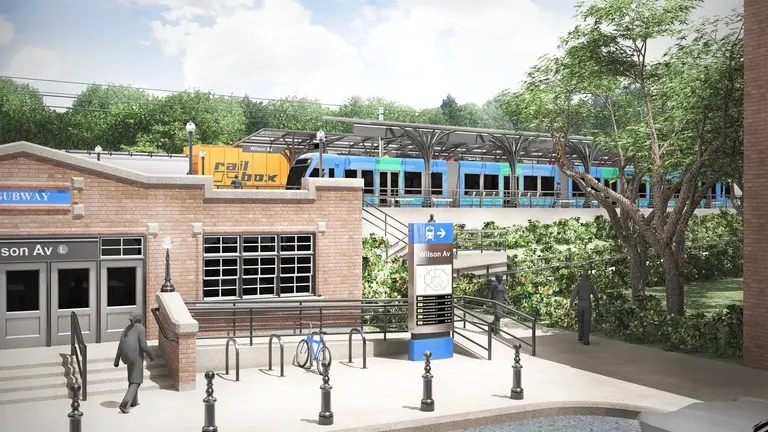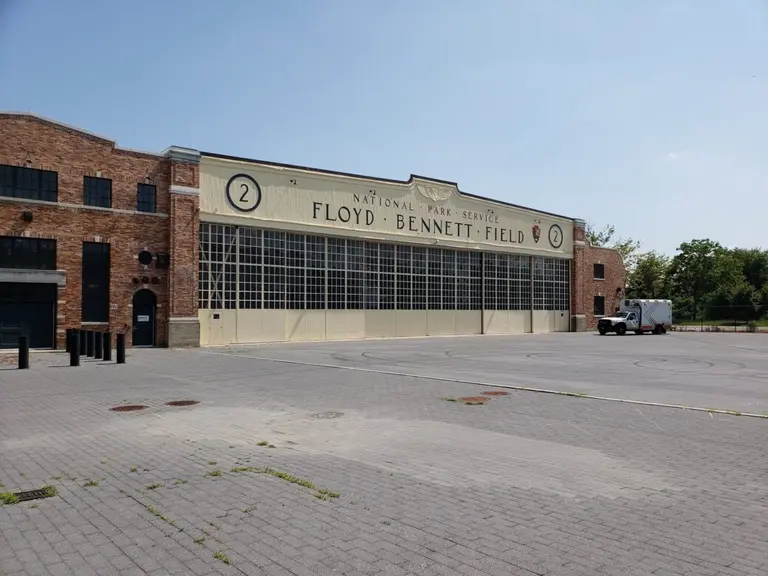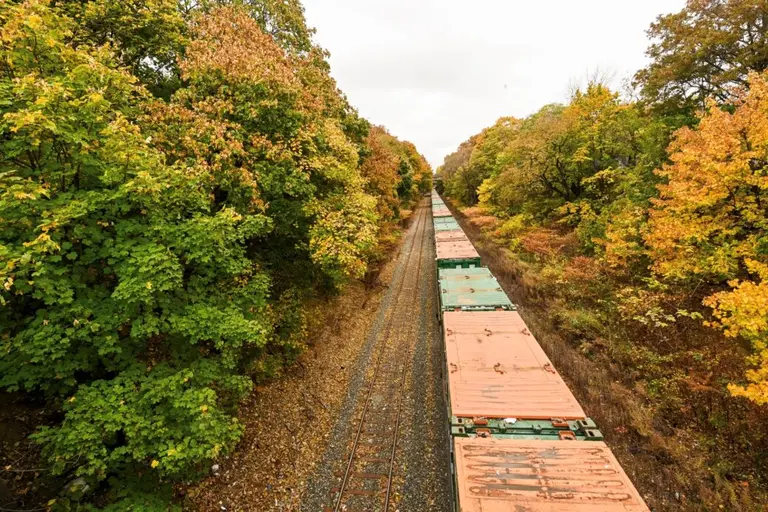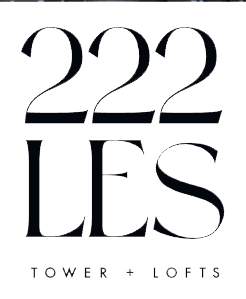The G train is partially shutting down for six weeks this summer. Here’s what you should know
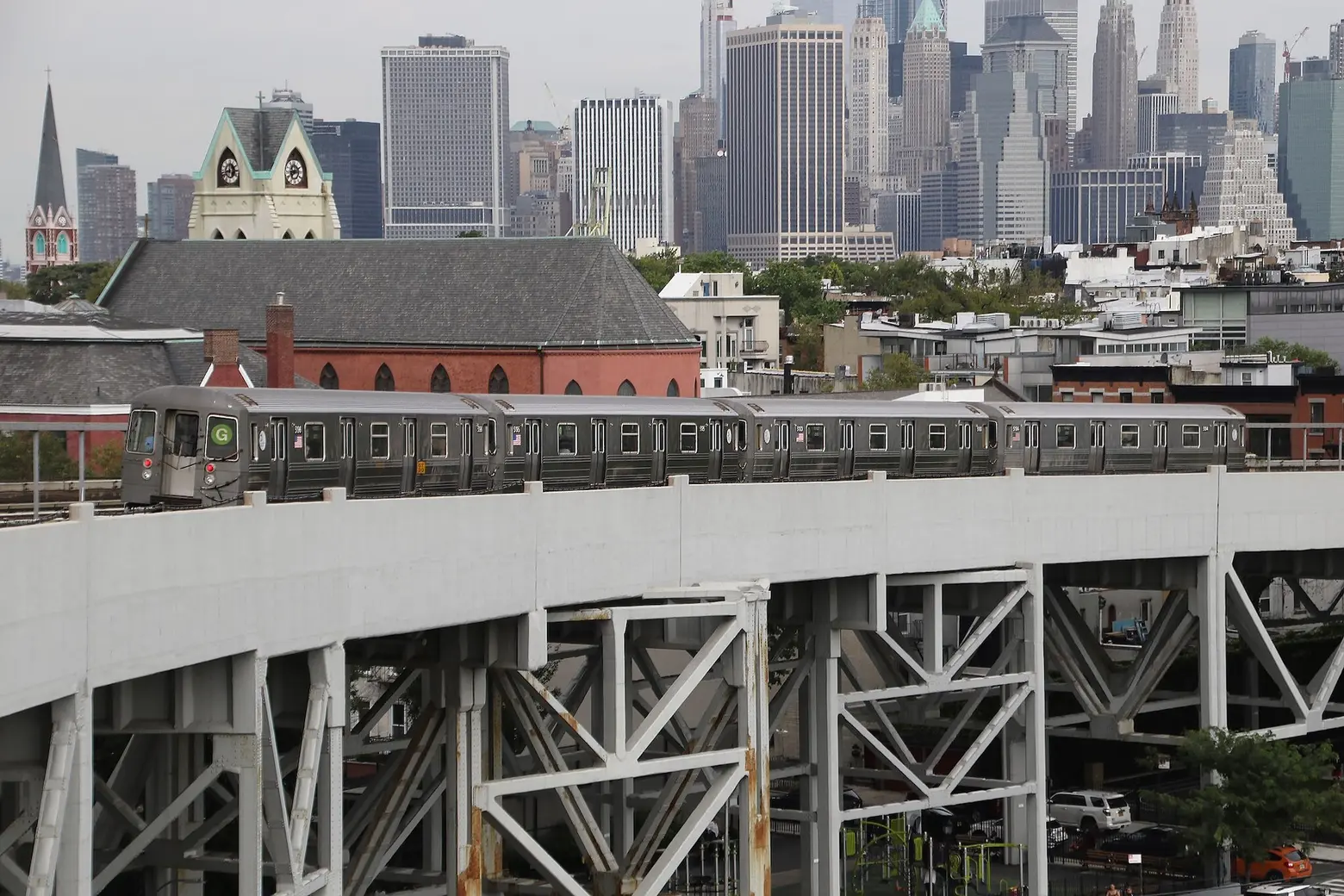
G train leaving Smith-9th Streets. Photo credit: Mtattrain, CC BY-SA 4.0, via Wikimedia Commons
The G train will partially shut down for six weeks this summer while the MTA replaces a 1930s-era signal system. The agency this week revealed the planned service changes, which will kick off in three phases starting June 28 through September 3 and impact the entire 11.4-mile line. To make it easier for the 160,000 daily commuters who rely on the G train, MTA announced plans to run free shuttle buses no more than every four minutes during peak weekday hours and allow for free transfers at certain stations during the shutdown.
The project will modernize the signals on the Crosstown Line, which is used by the G train and still has its original signal system from when it opened nearly a century ago. The 1930s-era signal system will be replaced with communications-based train control (CBTC), which allows trains to run closer together, improving reliability and efficiency of the line.
The G train provides a critical connection between Brooklyn and Queens, as well as northern and southern Brooklyn. The line has been prioritized for upgrades by the MTA because of its below-average performance. The line’s Customer Journey Time Performance (CJTP), the estimated percentage of rider trips completed within 5 minutes of their scheduled time, was among the lowest in the system at 81.8% last November.
The L train, which shutdown for a year starting in 2019, has the modern signal system and saw a CJTP of 91.4% during the same time period.
For six weeks starting next month, the G line will be partially suspended in three phases:
Phase 1: June 28 through July 5
- G trains will not run between Court Square and Nassau Avenue in either direction.
- G trains will not stop at Court Square, 21st Street, and Greenpoint Avenue.
- Free B94 shuttle buses will run between Court Square and Nassau Avenue at all G stops.
- J and Z trains will make local stops between Myrtle and Marcy Avenue. A free out-of-system transfer is available between Broadway and Hewes Street or Lorimer Street.
Phase 2: July 5 through August 12
- G trains will not run between Court Square and Bedford-Nostrand Avenues.
- G trains will not stop at Court Square, 21st Street, Greenpoint Avenue, Nassau Avenue, Metropolitan Avenue/ Lorimer Street, Broadway, Flushing Avenue, or Myrtle-Willoughby Avenue.
- Free B98 shuttle buses will run between Court Square and Bedford-Nostrand Avenues at all G stops.
- J and Z trains will make local stops between Myrtle and Marcy Avenue. A free out-of-system transfer is available between Broadway and Hewes Street or Lorimer Street.
- G trains will run between Bedford-Nostrand Avenues and Church Avenues at all times; every 8 minutes during rush hour and every 10 minutes other times.
Phase 3: August 12 through September 3
- G trains will not run south of Bedford-Nostrand Avenues.
- G trains will not stop at Classon Avenue, Clinton-Washington Avenues, Fulton Street, Hoyt-Schermerhorn, Bergen Street, Carroll Street, Smith-9th Streets, 4 Avenue-9th Street, 7th Avenue, 15th Street-Prospect Park, Fort Hamilton Parkway, or Church Avenue.
- The F train will replace the G between Bergen Street and Church Avenue.
- Free B93 shuttle buses will run between Bedford-Nostrand Avenues and Jay Street-MetroTech, making all G stops.
- J and Z trains will make local stops between Myrtle and Marcy Avenue. A free out-of-system transfer is available between Broadway and Hewes Street or Lorimer Street.
- G trains will run between Court Square and Bedford-Nostrand Avenues at all times, every 8 minutes during rush hour and every 10 minutes other times.
The MTA said it plans to run shuttle buses every 1 to 4 minutes on weekdays from morning to evening and every 5 to 10 mintutes on late weekday evenings and overnight. Saturday and Sunday shuttles should run between every 3 and 10 minutes depending on the time of day.
The partial shutdown does not mean the project will be completed by September. More work scheduled for week nights and weekends will be done in the fall and into early next year. The MTA hopes to upgrade the signal system entirely on the Crosstown Line by 2027.
RELATED:

